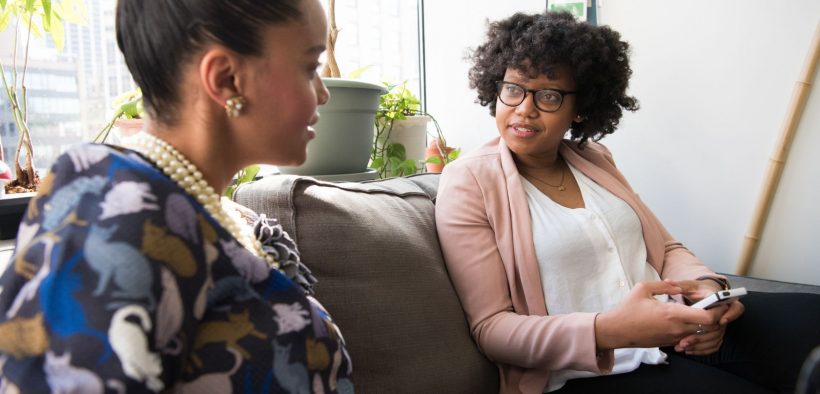The Sudden Caregiver: a guide for entrepreneurs to put more self-care into caregiving


Karen Warner Schueler
Like many executive coaches, Karen Warner Schueler has advised clients on how to deal with a variety of life-or-death situations that arise in their day-to-day business. However, when a parent or relative’s health takes a turn, the burden more commonly falls on women, particularly those who are single or are small business owners or self-employed. This means that how they respond to unexpected situations can be life or death for their business.
Through her recent book, The Sudden Caregiver, Warner Schueler recommends an approach that will often parallel sound business thinking while bringing in several aspects of self-care and not being too hard on oneself if something doesn’t play out in a warm, fuzzy way. While there’s the Hallmark card ideal of caregiving that depicts loving, unified family members in homey settings, there’s reality, which is more complicated and diverse. In fact, she notes that there are many realities depending on family relationships and dynamics.
‘About 69 per cent of caregivers are women, especially with the various other roles they take on in life as a mother, wife, and sister who will do what’s expected no matter what their relationship is with the person who is sick,’ Warner Schueler explains. ‘In the interest of doing the right thing, women will jump in. Any woman in this situation who is an entrepreneur, meanwhile, has the advantage of agility … the ability to do two very different things at once. Being entrepreneurs teaches us how to be flexible and take challenges on as they happen rather than resist them. By addressing challenges, you’re more likely to make progress, whether you’re dealing with a business setback or making sure your loved one gets the right medical care and is comfortable.’
Warner Schueler, in fact, sees her transition from a successful 25-year corporate career to having her own career coaching consultancy (the Tangible Group) was a form of self-care. ‘I wanted to be more of service and do more good for others and society at large.’
On the day she became a sudden caregiver, she was a wife, a mom, a consultant and business owner, a coach, a runner, a friend, and a consumer of too much Starbucks coffee. She was not a caregiver. Until she was. On that day when her late husband was diagnosed—out of the blue—with stage IV cancer, Karen certainly had no idea that she had instantaneously joined a silent army of informal, unpaid family caregivers around the world who had also been pressed into sudden service.
‘As you get older, you become more clear on your values, and what I found when I got to that point (as many women do in their 40s to early 50s) is that I needed to find something that would satisfy me personally and professionally on a day-to-day basis,’ she says. ‘Since getting my qualifications, I did not find it too difficult to get clients or stay in contact with them. With the work I do, I think of myself less as an entrepreneur any more and more as a coach for others to help others find their way in a transitional time. When my husband was diagnosed with a major illness, I had to check in with myself in a similar fashion to not only figure out how to help somebody whose been a part of my life for years, but also continue to coach my clients. Succeeding on both fronts was ultimately satisfying, especially as methods of connecting that became more common during the pandemic helped me stay connected when it matters most.’
While doing the best one can is always a good place to start, Warner Schueler points out that applying an entrepreneur’s extra attention to detail can help make your caregiving efforts more effective. Consequently, caregiving with an entrepreneur’s mindset is a form of self-care that can help protect both her sanity and footing in her business or work life.

Whether running your business or ensuring your loved one gets proper care, let your entrepreneurial skills and a little self-care lead the way.
Lucire Rouge: How does The Sudden Caregiver reflect the many scenarios real people actually face, including those situations where the caregiver is not close to the parent or relative in need?
Karen Warner Schueler: The most important advice summed up is to manage your expectations with your relationships when it comes to caregiving. I always address the importance of the caretaker doing her best to make her parent or loved one comfortable and find the best medical help. However, when you’ve had a difficult ongoing relationship with someone before they were ill or had a diagnosis, the situation can be even more overwhelming … especially when caregiving responsibilities may come at the expense of other areas of your life.
How has your personal experience informed how you approached writing the book?
I became a caregiver to my late husband, even though we had never had a great relationship. He was very close to his older sister, but she and I were never close. In my case, it became a matter of looking at the relationship and asking myself how I could do the right thing even though our relationship was not in a great place. In many cases, the truth is that people who did not previously get along will come together and hug their parent or partner in a caregiving situation if they never had done so previously. It’s also important to acknowledge that everybody in the “pod” of the person being cared for will be impacted by his or her diagnosis in different ways, based on how those individual relationships evolved.
As a business owner, can you use the entrepreneurial skills you’ve picked up over time and apply them to caring for somebody in a way that’s appropriate to his or her health care and emotional need?
Yes. In fact, the skills you will pick up as caregiver are similar to what you’ve picked up as an entrepreneur building your business, client base, and reputation. In both situations—caregiving and business building—you’re facing the unknown, which are a source of anxiety and distress. However, as you get good at them, your caregiving experience can turn into a source of positive emotion and well-being. And with that, there’s evidence from various studies where caregivers who also consult or own businesses acknowledge that they are worried about money, resources and the physical drain. However, there’s an upside, which I call the ‘caregiver paradox’, gaining the confidence to know you’re really taking good care of this person as you may have with the ups and downs of building a business.
Describe your experience with the ‘caregiver paradox’.
I’m really proud of the fact that I found a way to balance my time and priorities, with my late husband as well as my clients. While everybody’s situation is going to be different, one way anybody can benefit is by improving her negotiating skills out of necessity. In caregiving, effective negotiation not only makes it easier to translate information going back and forth between your parent and the doctor, but also setting boundaries and managing expectations. Developing caregiver resilience, like being an entrepreneur dealing with banks, local government and other entities, helps you build that negotiator’s muscle. Being able to move forward from this is something I call ‘quarterbacking’ in the book—the idea that you are in charge as the caregiver and you’ve assumed the leadership role with your loved one, the doctors, social workers and others as you do with your company’s employees and clients.
How does ‘quarterbacking’ work, especially as some readers are not fans of or even familiar with American football?
I am a big fan of American football, and I see the quarterback as the one person in the field who can cut through the chaos to help the team get to the goal. You have to quickly convey the strategies to do so to others on the team, including the recipient of care as well as the doctors and others involved with the patient’s case. While there is no instruction manual or playbook, and every caregiver’s situation will be different, if you are clear on your values and priorities you can succeed scoring goals to keep your loved one comfortable, and the rest of the “team” working on his or her best interests. A good quarterback’s team will also have his or her back whenever she needs emotional support and a morale boost.
So, how would you juggle those varied relationships as well as your own feelings?
In the book, I talk a lot about being a little kinder to yourself and the person you’re caring for than you may actually feel. This is where self-care comes in. It’s like dealing with a difficult customer or client in some ways. When you realize that everyone will [deal with somebody in a] caregiving situation differently, think about those who shine a bright light and bring positive energy into certain difficult situations to successfully cope. Also keep in mind that when a person becomes ill, some people in his or her life will want to help while others will not have anything to do with her. A crisis situation with either a family member or a business is no time to judge anybody’s character, as there are so many reasons why people hold themselves back while others dive in.
Perhaps while you’re forgiving the person you are caring for, you can also forgive those who could but may not want to help. This will relieve you of the anxiety of asking yourself things like, ‘Why isn’t my brother flying to Chicago to help take care of Mom?’ or ‘Where are his friends when he needs them most?’
How do you cope when the person you are caring for is angry about losing their independence or simply doesn’t like having people around?
Reciprocity has become a big thing in my life, as I look at and try to coach others on whether or not relationships have value. Among those people who will offer their help, remember it is not for you as the caregiver but for the person being cared for to decide. Chances are they had a reciprocal relationship with somebody before the diagnosis. In this situation, this is where acting as the quarterback will come in, taking a leadership roll among those wanting to help their friend—your loved one—and, therefore, be a part of the team.
As a caregiver, how can you arm yourself emotionally so you don’t allow in negativity from the person you are caring for?
One thing I suggest is knowing which relationships in your own life are reciprocal. There are people who know, instinctively, if I’m broken down at midnight on the highway, I can make that one call. With the friend you can trust to be a member of your support squad, ask yourself what are the things you can do so they will be there for you to support your caregiver efforts as they would or have your business efforts. These are people you can bounce ideas off of and learn from based on common experiences, and you can reciprocate by helping them out in kind.

The Sudden Caregiver is available at www.thesuddencaregiver.com as well as Amazon.com.
Photographed by Jenny Uederberg and Christina/wocintechchat.com/Unsplash

















